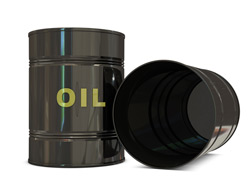This year should have been a golden opportunity for oil bulls, but it has proven just as tricky to trade as any other. China’s rebound from the lockdown and Western governments’ halt of tapping strategic oil reserves should have helped push prices higher, but by mid-year, they had fallen by more than $10 a barrel.

Oil prices defy strong demand.
The drop in oil prices is often accompanied by weak demand. A slowdown in manufacturing in the West and a cooling property market in China also dampen the mood. However, one cannot say that oil demand has fallen. Official figures from government agencies and oil analysis firm OilX show that yearly global oil demand has risen by 2.5 million barrels, beating forecasts by 0.3 million barrels per day.
Despite falling demand for some industrial petroleum products, consumers continue to buy in bulk, partly due to fiscal stimulus such as the US Inflation Reduction Act. Frustration among bulls is growing as OPEC+ producers keep cutting output. The latest cuts were announced on Monday.
Why are prices not rising? One reason is high-interest rates, which have increased the cost of raising capital, and fears of a global recession are forcing companies to deleverage.
The impact of higher interest rates on oil storage
For refineries and trading companies, storing oil in tanks has become significantly more expensive. In addition, rising funding costs also mean higher losses when products don’t sell (when the recession slows demand). While understandable, this corporate reaction to higher interest rates makes the market vulnerable to shocks, especially when demand is strong.
The world is abandoning the zero interest rate policy that has lasted for over a decade and bred a sense of complacency. Trading firms that have grown rapidly over the past decade have no non-zero interest rates experience.
The historical lessons of destocking
History teaches clear lessons. In the twenty years before the financial crisis, there was a clear correlation between interest rates and the structure of the oil market. For every 1% increase in interest rates, oil stocks in developed countries fell by an average of 10 million barrels a year, about the same amount as the gasoline used in a day in the US, while global consumption was much lower.
In an era of backwardation – a market structure that sees higher prices for immediate delivery due to high demand – destocking accelerates significantly when interest rates rise.
The time around the turn of the millennium is probably closest to the present. Beginning in January 2000, the US started raising interest rates, and later that year, OPEC began cutting production. Even stock markets initially recovered ahead of the 2001 recession, led by some technology companies.
According to the International Energy Agency, OECD oil stocks fell sharply over the same period: in developed countries, they dropped by 6% per year. This is a significant drop in an industry that prefers maintaining substantial shipment volumes.

The market is in a precarious position.
This time, US interest rates in this area have risen by more than 5% over 12 years since March of last year. And oil stocks are now lower than before the pandemic as OPEC tries to control supplies.
Actual marketable oil reserves in OECD countries (adjusted for 280 million barrels of oil in new pipelines and infrastructure) are only enough to meet the demand for about 22 days, three days less than the 2010-2019 average.
The market is in a precarious position. Some indications are that refiners in Asia fear that depletion is already too far along and are looking to replenish inventories. They continue to buy oil from Saudi Arabia even after the kingdom hiked official monthly selling prices despite cheaper Iranian and Russian oil being available. However, by the end of the year, global commercial oil reserves could reach their lowest level in ten years. At the same time, the US government will start buying just 180 million barrels of oil to replenish strategic oil reserves that were depleted last year. This will increase the market’s vulnerability to shocks and unexpected political maneuvers by OPEC+ by the end of the year. You must be prepared for anything!


